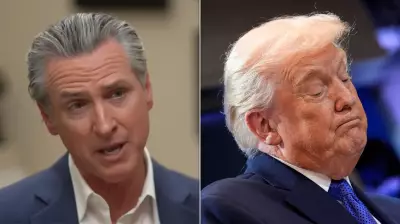
Tanzanian President Samia Suluhu Hassan has secured a decisive victory in the country's presidential election, capturing a staggering 97.09% of the vote according to official results released Wednesday. The election, however, was marred by controversy as the main opposition parties boycotted the process, raising questions about the legitimacy of the outcome.
Overwhelming Mandate Amid Opposition Boycott
The National Electoral Commission announced that President Hassan received 3,161,867 votes in Sunday's election, overwhelmingly defeating her sole opponent, Seif Sharif Hamad of the ACT-Wazalendo party, who managed just 65,235 votes. The landslide victory comes after Tanzania's primary opposition parties called for a boycott, alleging the electoral process was neither free nor fair.
"The people have spoken clearly through their votes," declared Commission Chairman Jacobs Mwambe, presenting the final tally. "This election demonstrates the strength of our democratic processes."
Zanzibar's Separate Election Also Delivers Clear Winner
In a parallel election for the presidency of Zanzibar, semi-autonomous region of Tanzania, incumbent President Hussein Mwinyi of the ruling CCM party also claimed victory with 76.27% of the vote. His main challenger from ACT-Wazalendo secured only 21.78%, continuing the ruling party's dominance in the archipelago.
The Zanzibar election has historically been a flashpoint for political violence and contested results, making this relatively peaceful outcome significant for regional stability.
International Observers Raise Concerns
While the electoral commission praised the voting process as transparent and credible, international observers and human rights organizations have expressed concerns about the political environment leading up to the election. The opposition boycott and reports of restricted political freedoms have cast a shadow over what appears to be an overwhelming mandate.
President Hassan, who became Tanzania's first female president following the death of her predecessor John Magufuli in 2021, has positioned herself as a more moderate leader compared to her authoritarian predecessor. However, critics argue that significant democratic reforms remain elusive under her administration.
What This Means for Tanzania's Future
The election results solidify President Hassan's position as she completes the term begun by Magufuli and now earns her own five-year mandate. The international community will be watching closely to see whether her second term brings the promised political reforms and economic development, or whether the opposition's concerns about democratic backsliding prove justified.
With such an overwhelming victory, President Hassan has secured a strong position to implement her agenda, but the legitimacy questions surrounding the election may complicate her international relationships and domestic governance.






